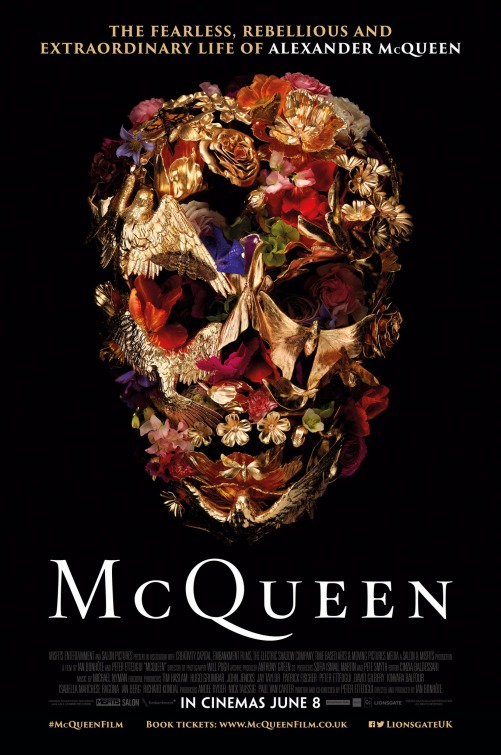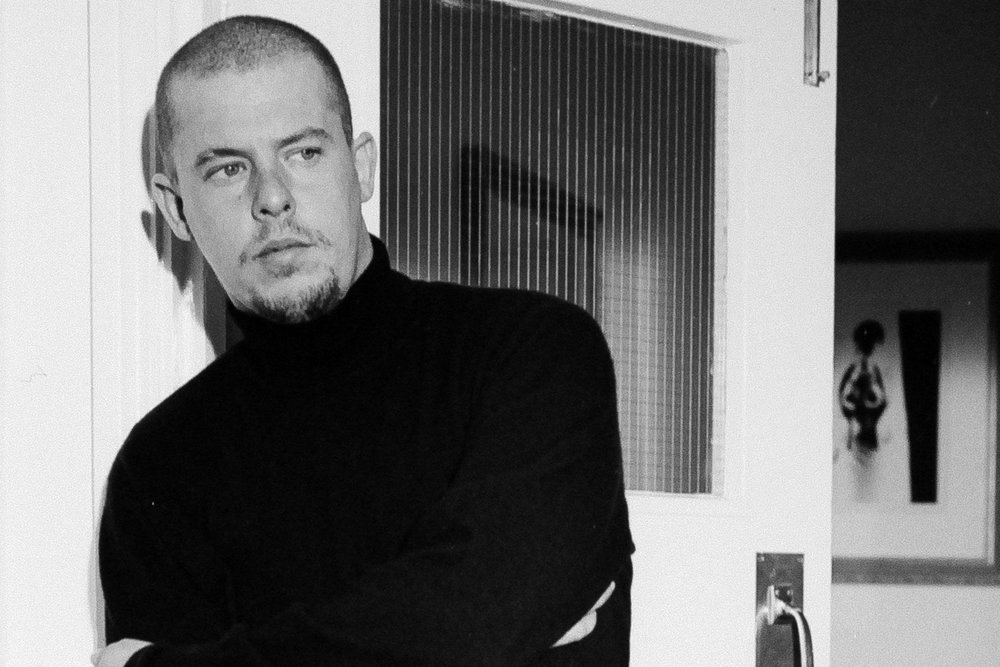McQueen (2018)


SHOULD I SEE IT?
YES
Of the several fashion industry documentaries released this year, McQueen is the best of the lot.
Offers an unflinching portrait of an artist whose celebrity and fame consumed him and began antagonizing him. A fascinating and honest film.
Wonderfully edited and structured, directors Ian Bonhote and Peter Ettedgui, bring us into the world of fashion and allow us to understand just what a cutthroat and lucrative world it can be.
NO
Casual or passive fans may find this a lot to endure. At 111 minutes, it feels a bit long and might lose some viewers’ interest.
Those without compassion for people stricken with addiction or who belief mental health issues are largely make believe and fixed with changing one’s attitude, likely won’t have much patience for McQueen’s story.
Fashion just may not interest you. Also, some of the designs are, well, they’re a lot.
OUR REVIEW
By the time he was 26 years of age, Alexander “Lee” McQueen was the Fashion Designer of the Year. By the time he was 32, he was a four-time winner of that same prestigious honor. In his 30’s, he moved from being an edgy, groundbreaking designer to something of an enfant terrible or provocateur in the fashion world. Then, at 40, in February 2010, one week after his mother passed away, McQueen was found hanging in his residence. Later that same day, he would be pronounced dead from an apparent suicide.
The ascendant rise and subsequent tragic fall of McQueen’s life is documented in McQueen, a fascinating new documentary co-directed by Ian Bonhôte and Peter Ettedgui. With hours and hours of archival footage at their disposal, and a supportive ensemble of those who knew and worked with McQueen, the directors attempt to bring us into the whirlwind life and world of the designing legend.
Divided into five sections, McQueen does follow a rather basic formula of essentially walking us through a life from beginning to end. But when referencing McQueen’s initial forays into design and costuming, we learn that he got his start working as a tailor on Savile Row in London. His work became the talk of the town. Within a few years’ time, he had a reference in hand to work towards a Masters in Fashion Design at the prestigious Central Saint Martins college.
As McQueen is building an impressive portfolio, we see him in video footage with friends, free-wheeling, almost carefree, and unburdened by the stress that would soon cannibalize his time, once his name and unparalleled vision for fashion would reach the zeitgeist. We are told of his penchant for partying, an addiction to drugs would emerge, and he struggled with coming out as gay.
His talent, however, shocked the system. Notably, McQueen would buy cheap garments and jazz them up or cut them up and put them on runway models who confidently presented them on the catwalk. At times, he seemed almost to be pranking, or mocking the uptight and elite within his own industry. However, everything McQueen touched seemingly turned to gold, as he became the lead designer for Givenchy in 1996, the same year he earned his first Designer of the Year Award.

As interesting as his rise to fame and celebrity was, Bonhote and Ettedgui begin systematically showing us that fame, for McQueen, came with a cost. His work habits became untenable without substance abuse, he developed an intense distrust and paranoia with other industry professionals, and he withdrew for long stretches of time. His sensitivity began to overwhelm him and the family, friends, former partners, and colleagues who speak on camera about McQueen paint a picture of someone slowly drowning, but convincing everyone he did not need assistance.
In a year full of fashion-industry documentaries, McQueen is the best of the lot. Riveting, fascinating, and providing us a rollercoaster of emotional highs and lows to process, we see how Alexander McQueen’s devil-could-care attitude made him the best in the world, and how the struggles to keep up a reputation and exist in a manic, fickle, and ever-changing culture helped cannibalize his emotional and physical state.
In hindsight, the more provocative art and fashion installations and experimental exhibitions that would define much of his work in the 2000s, almost felt like a cry for help. As he strives to create headlines, McQueen began losing himself in the process. If Bonhote and Ettedgui’s film captures anything, it is the dangerous potency that celebrity status can have on those lucky enough to achieve it.
For Alexander McQueen, he clearly was loved by so many, but by the end, he fell victim to his own celebrity – a status that accentuated insecurities, amplified anxiety, and left him feeling as if he had to justify a continued relevancy. In the end, he simply could not sustain the world he and others built around him.
CAST & CREW
Documentary Featuring: Alexander McQueen (archive footage), Bernard Arnault, Joseph Bennett, Detmar Blow, Jodie Kidd, Janet McQueen, Kate Moss, Michelle Olley, Magdalena Frackowiak.
Director: Ian Bonhôte, Peter Ettedgui
Written by: Peter Ettedgui
Release Date: July 20, 2018
Bleecker Street Media
